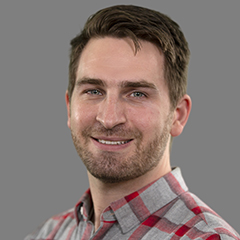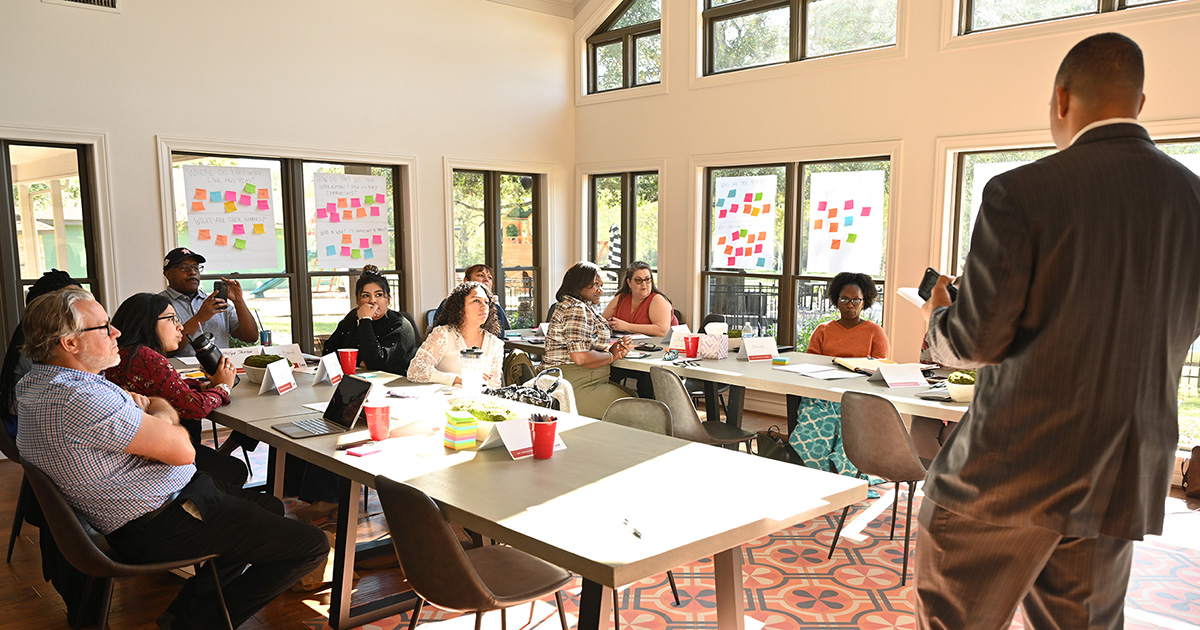The birth of my son changed everything about my world. In the days and months leading up to his birth, I worried about whether I would be a good dad. The year before, my own father had passed away after a long battle with cancer. He was my best friend, and someone I looked up to for everything. How could I live up to the standard he set? My worries ranged from the mundane—would I ever get a good night’s sleep again?—to more fundamental concerns: How would my relationship with my wife adjust? Would I bond with our new baby? Every father shares these worries, but it’s not something that we always talk about.
Experiencing life as a new father brought my personal and professional lives together and made me feel closer to men like Martin, who is featured in the video above. In many ways, our lives and experiences are different. Yet becoming a father was a transformational experience for both of us. When I hear Martin speak about how the birth of his child was one of the greatest moments of his life, and how it motivated him to be a better man, now I think I understand what he means on a more personal level.
Sharing my own journey into fatherhood so close to Father’s Day is especially meaningful to me because I’m part of a team of researchers who study the experiences of dads and their desire to be better parents. Many dads, including Martin, are motivated to participate in responsible fatherhood programs to be positive influences on the lives of their children. To help fathers reach their goals, responsible fatherhood programs offer group workshops, training, and one-on-one coaching related to economic security, parenting, healthy relationships, and father development.
My team at Mathematica, which includes Heather Zaveri, Sarah Avellar, and Pamela Holcomb, recently completed an evaluation of how well these programs work and how dads viewed their individual experiences. Known as the Parents and Children Together (PACT) evaluation, this work—in partnership with the Administration for Children and Families at the U.S. Department of Health and Human Services—was designed to help broaden our understanding of responsible fatherhood programs in an effort to help fathers strengthen their bonds and engagement with their children.
Martin’s video and several other interviews, case studies, and testimonials are now available in an online report, Supporting the Fatherhood Journey, which chronicles the results of this evaluation and provides deep insights for parents, policymakers, and practitioners striving to better serve fathers and their children.
Many dads who we talked to as part of the PACT evaluation shared their experiences with incarceration, homelessness, substance use, or struggles in traditional schools. These situations can create obstacles to providing for their children. The dads in PACT wanted to overcome those barriers, but, oftentimes, didn’t have positive examples to show them the way. Responsible fatherhood programs help bridge this gap, teaching skills and providing role models to help dads strengthen their involvement with their children.
Many dads we talked to shared how the programs helped them improve their involvement in their children’s lives. Doing homework together, reading a book, or eating together were small but important steps toward building stronger bonds with their children. They also told us how the programs helped them become better parents and how they valued the opportunity to bond with other dads.

Scott enjoys time with his 2-year-old son.
When my father retired, he took up baking bread, and I adopted the hobby. My son, now two, likes to help in the kitchen by watching as I fold the dough and prodding the shaped loaves to see if they’re ready to go in the oven. Father’s Day is a time to reflect on the traditions that we inherit, and those that we pass on to our children. Each loaf I bake I share with my father and my son.
Being a researcher studying fatherhood helps me better appreciate this time of my life. Being a father helps me better appreciate the desire of dads to be there for their kids. Being both helps me understand that there’s no secret handbook to being a dad. We’re all afraid that we’re doing it wrong, and even after this research there are far more questions than answers. But when I watch my son grow, I’m struck with the same pride, wonder, and amazement that, on some level, all fathers share.


